Charlotte, Lexly, Elaina
Our day started with breakfast at 8 am, which was followed by the first of our student debates. Group 1 (Chloe, Arjun, Shannon) were the first to present and they argued the usefulness of ex-situ strategies for conservation. Arjun was the proponent and discussed the benefits of ex-situ strategies such as replenishing diminishing populations of small animals. In addition, he emphasized the importance of public education on conservation. Chloe was the opponent and discussed the limitations of ex-situ strategies and emphasized the importance of whole ecosystem conservation and resolving the main cause of the decreasing population. As the moderator, Shannon led the group discussion and summarized the points discussed. Group 2 (Sydney, Sherry, Ying) followed with their debate and argued that trophy hunting is a valuable tool to generate money for local conservation and benefit local communities. As the proponent Sherry highlighted the positive economic benefit of trophy hunting for conservation. Sydney, the opponent, talked about the pressure that trophy hunting puts on natural populations, as well as the ethical concerns. As the moderator, Ying summarized the points made from each side and engaged the class in a lively discussion.
After lunch, we packed the truck and browsed the goods of a vendor present at Kolping Conference Center, many of us buying a few things as souvenirs. Shortly after, we boarded the bus and travelled about 4 hours to Angiri Camp, near the town of Nanyuki, near Mount Kenya. Along the drive, we observed an abundant amount of green forest, small farms and grazing livestock, and many school kids who were very excited to see us. We arrived at Angiri Camp around 5:00 pm and immediately began to set up our tents.
In the evening, we had the pleasure of welcoming our guest lecturer Mordecai Ogada. He elaborated on the paradigms related to conservation and challenged many of the dominant ways of thinking. He brought attention to the issues of elitism and racism in African conservation. He emphasized the need to consider human culture and history, along with animal populations. He used examples of conservation failures, such as transportation of rhinos from South Africa to Chad to show the need for a more multidisciplinary approach to conservation, particularly in Africa. Dr. Ogada concluded his lecture by stressing the importance of wildlife conservation being integrated with human populations, rather than isolating protected areas and separating them from humans.
After our lecture, we enjoyed a delicious dinner, cooked by our friends Mia Mia, Franco, and Eucabeth. We will explore our new home for the next 4 days, and enjoyed a bon fire and played pool.
- Nightime lecture
- Our camp site at Angiri
- Roadside scene
- Setting up the camp
- Roadside scene
- Debates
- Debates!
- Bon fiore at Angari Camp
- Sunset at Angiri Camp
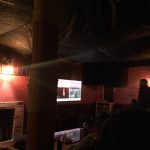
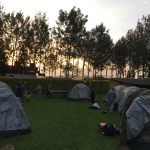
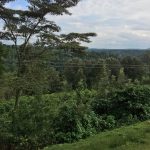
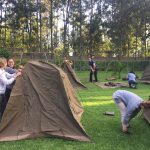
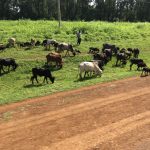

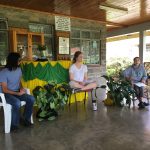

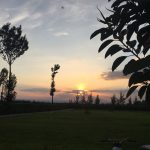
Leave a Reply